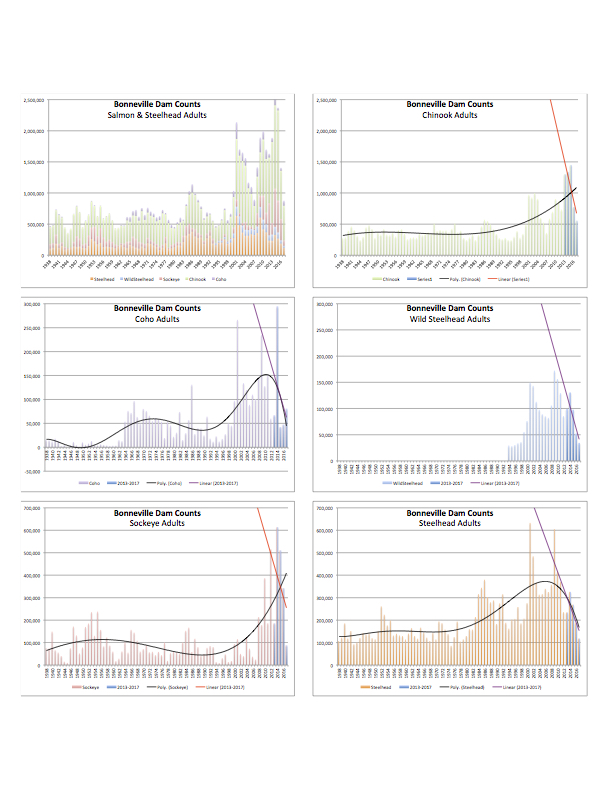forum
library
tutorial
contact

Snake River Dams Critical
to Irrigated Ag Industry
by Darryll Olsen
Tri-City Herald, August 25, 2018
|
the film forum library tutorial contact |

|
Snake River Dams Critical
by Darryll Olsen
|
She is a keeper! Vote for Cathy!
 The real presence of the Columbia-Snake River hydro system opened a way of life for irrigators that has led to the most efficient and productive agricultural operations on the planet.
The real presence of the Columbia-Snake River hydro system opened a way of life for irrigators that has led to the most efficient and productive agricultural operations on the planet.
In direct economic terms, the Lower Columbia-Snake River irrigators farm about 350,000 acres along the Ice Harbor, McNary, and John Day Pools, and the irrigated agriculture industry yields over $1 billion annually to household incomes -- the impact felt throughout Eastern Washington and Oregon, as well as in Seattle and Portland.
(bluefish notes: Survey reports include in the 2000 Environmental Impact Statement shows 36,244 acres under irrigation.)This enviable irrigated agriculture complex -- with direct production, food processing, and high-tech agricultural services -- has been accomplished with an imperceptible impact on mainstem Columbia River flows, while co-funding the infrastructure that allows for the region's homes, businesses, local government services, schools, municipal recreation facilities, churches, and social services.
It functions with no empirically measurable impacts to fish, while hundreds of thousands of adult salmon and steelhead cross McNary Dam, tens of thousand of fish cross Lower Granite Dam, and hundreds of thousands of fish are caught by Tribal commercial and non-Tribal sport fishermen throughout the river system.
But the irrigators' productive way of life is threatened by a 25-year Endangered Species Act legal challenge backed by the state of Oregon, Earth Justice, some Tribal members, and some fisheries and environmental groups, who want to impair fundamentally the Columbia-Snake River hydro system. No minor change, but measures that would make irrigation pumping conditions extraordinarily difficult, eliminate high-value peaking electric power, and disrupt already difficult to secure state water rights.
All to be done in the name of "salmon recovery."
Perhaps no one has more accurately, and honestly, redefined the true nature of the Columbia River salmon recovery conflict than Peter Kareiva, a well-respected conservation ecologist, who has worked with NOAA Fisheries on the Lower Snake River dam breaching question.
He correctly observes that salmon recovery and dam removal are two entirely different things, where dam removal represents a "visceral" symbolism tied to "getting rid of dams" (Kareiva's work is published by Oxford University Press, 2018). The objective is dam removal, not fish recovery.
To view graciously, this visceral symbolism, sought desperately by dam breaching proponents, is a faith-based belief, a way of life predicated on some form of transcendental mysticism.
Make no mistake, transcendental mysticism contributes to societal well-being, it is a principal element of every religious, or spiritual, belief professed by mankind throughout the ages. But successful religious beliefs, or transcendental philosophies, must be supported by socioeconomic systems that produce real, empirical benefits.
Perhaps even more so in today's world, no socioeconomic system can thrive without a tangible infrastructure that cultivates high-efficiency, high-performance irrigated agriculture. This is empirical fact.
The Columbia-Snake River system offers a prosperous way of life that is real; the dam breaching environmentalists prefer a transcendental, unobtainable objective. The irrigators have made their choice, and they are determined to protect their way of life and the communities we serve.
To this end, the Columbia-Snake River Irrigators Association has requested Dept. of Interior, U.S. Army Corps of Engineers, and Dept. of Energy senior managers to engage an Endangered Species Act exemption review, to stop further deterioration of the hydro system based on transcendental whims.
Regional community leaders, and those who support the hydro system's way of life, should be firmly endorsing the irrigators' action.
Come learn more about our rivers, our way of life at RiverFest 2018 on Saturday, Sept. 8 at Columbia Park in Kennewick, Washington.
Related Sites:
Recovery and Management Options for Spring/Summer Chinook Salmon in the Columbia River Basin by Peter Kareiva & Michelle Marvier, Nature, 11/3/00
learn more on topics covered in the film
see the video
read the script
learn the songs
discussion forum
